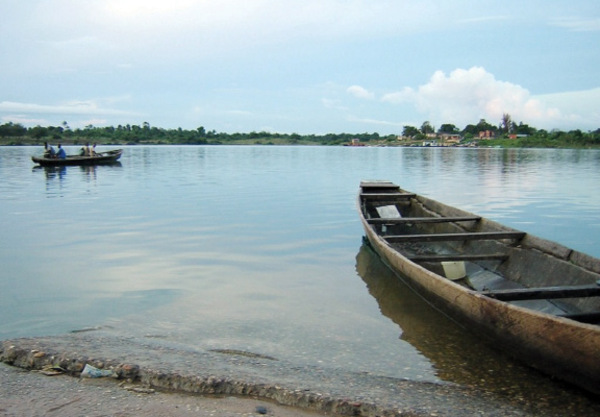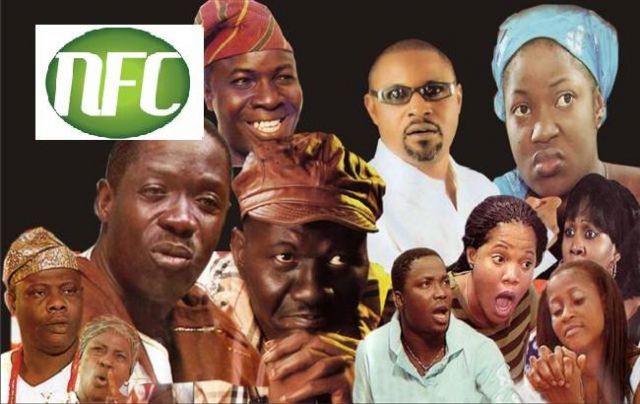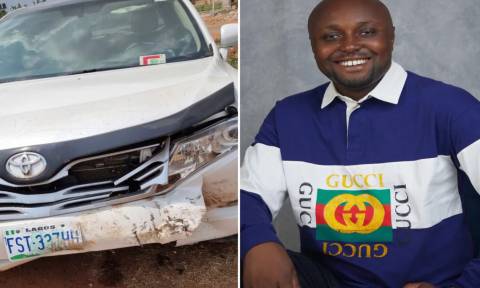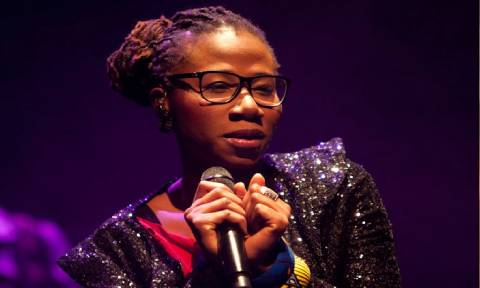
I travelled to Oguta, in Imo State recently, with a six-member crew, to hunt for locations for my debut film, The Distant Light, a story that has been described by German anthropologist, Sabine Jell-Bahlsen, as an ‘Avatar-in-Nigeria thriller.’ Sabine is an authority on Oguta/Oru-Igbo cultures and traditions and has written one of the most extensive and deeply researched works on the cosmology of the Igbo gods and goddesses. She spent close to 26 years there, living with the people and learning everything about them. That culminated in the groundbreaking work of anthropology, “The Water Goddess in Igbo Cosmology: Ogbuide of Oguta Lake,” published by Africa World Press.
Our paths crossed last year at a women’s conference, where she was speaking on Igbo traditions and I was giving a speech on why people need to study other people’s cultures. I found her quite intriguing (for she could speak Oguta Igbo, always sports Nigerian fabrics and holds a traditional title in Oguta). And when I finally bought her book, which she autographed, I saw names of my maternal family members in there, where she had acknowledged the help they had rendered during her stay in Oguta.
At the beginning of this year, after getting nominated in the Creative Artist of the Year of the Future Awards, and Adekunle Samuel Owolabi beat me in that category, we agreed to work together, at least, to ‘cool me down,’ for bruising my ego. I agreed to produce a script and he will produce a camera. And we will do a film together.
Bonny Island
I went into solitude at Bonny Island, and believe me; I finished the first draft within three days. I worked with a self-imposed deadline. On the fourth day, I left Bonny Island, with a broken heart, a broken pair of glasses and a completed script, that kept me happy.
This was just after the 2010 AMAA Awards, which I had attended in Bayelsa. For a lot, the AMAA was motivational and inspirational. For some, it was an avenue where anyone could face intimidation. Of course, watching Kunle Afolayan walk up to that stage, smiling and raising his plaques to thank the world, I felt I could come close. I just didn’t sleep well that night, as I kept thinking of how many heads he has! “The Figurine”, from every angle, came close to a perfect work of art.
A friend recently said that critics are like eunuchs in a harem: they know how it’s done, they have seen how it’s done, but they can’t do it. I agree. I’ve always being very passionate about the cinema and decided to enroll into a film school abroad, where I was trained as a scriptwriter and got to understand that it is easier said than done. So, as a harsh critic of Nollywood, I take back whatever harsh criticism I made in the past about its directors and actors. However we want to summarise it, making a film is never child’s play. It is a battlefield. People die. People live.
Local beliefs
For choosing Oguta as our location to shoot, we have been asked by the chief priestess, Akuzzor Anozia, after making incantations and consulting Ogbuide Lake Goddess, that we will perform rituals. Oh, yes, we have a long list of things to buy after which we will proceed to the Shrine of Ogbuide to appease her. The consort of the priestess will guide us throughout the whole period we will spend in Oguta.
For last time I updated my Facebook about Oguta, a friend commented: “I lost a close friend of mine to the Lake recently. He got drowned and the [locals] couldn’t let his people take his corpse.” It was no surprise as my mother used to tell me similar things. When I asked the chief priestess, she said that if the dead person’s family had performed rituals, they would have gone with the corpse. I went back to the friend who had commented and she said, “Yes, they were asked to perform ritual. But it was expensive.”
“The Distant Light” is my take on arrogance and belief. Is belief necessary for a people? Does arrogance pay? It is my own way of contributing to Nigerian cinema, with a cast and crew from different parts of the world. It is my way of saying that we the young people are quick at condemning the works of the older generation and still cannot do anything to make changes. This is my way of saying, “Thank you to Tunde Kelani and Kunle Afolayan” for refining Nigerian cinema, for inspiring a new generation.
Onyeka Nwelue is author of The Abyssinian Boy. “The Distant Light” will be produced by DADA Films (Lagos); and KStunts Media (Johannesburg).


















